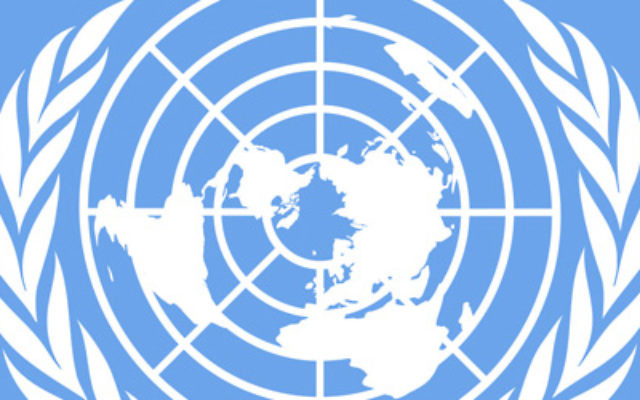Human rights boss totes anti-Israel baggage
NAVI Pillay, the UN High Commissioner for Human Rights, has been invited to visit Australia in May to discuss hot-button issues, including the treatment of asylum seekers and Aborigines, which have been highlighted in a UN human rights review. But the consistently anti-Israel record of the 47-member UN Human Rights Council (HRC), which Pillay reports to, has been overlooked in the lead-up to her trip.
 NAVI Pillay, the UN High Commissioner for Human Rights, has been invited to visit Australia in May to discuss hot-button issues, including the treatment of asylum seekers and Aborigines, which have been highlighted in a UN human rights review. But the consistently anti-Israel record of the 47-member UN Human Rights Council (HRC), which Pillay reports to, has been overlooked in the lead-up to her trip.
NAVI Pillay, the UN High Commissioner for Human Rights, has been invited to visit Australia in May to discuss hot-button issues, including the treatment of asylum seekers and Aborigines, which have been highlighted in a UN human rights review. But the consistently anti-Israel record of the 47-member UN Human Rights Council (HRC), which Pillay reports to, has been overlooked in the lead-up to her trip.
Visiting Israel and the Palestinian Territories last week for the first time since taking office in 2008, Pillay toured Sderot to view rockets collected after they had been fired into the border city from Gaza, and also visited the Hamas enclave on the other side.
But in a press conference in Jerusalem, Pillay defended her organisation against charges that it unfairly targets Israel, deflecting criticism not only from monitors like UN Watch, but from UN Secretary-General Ban Ki-moon, who last month stated that the HRC “cannot be a place where some members overlook the human rights violations of others so as to avoid scrutiny themselves”.
UN Watch notes that since the HRC was founded in 2006, 35 out of its 50 resolutions have targeted Israel, while major human rights abusers, such as Zimbabwe, Iran and Myanmar, have been on the backburner.
Despite the HRC’s obvious slant, Zionist Federation of Australia (ZFA) president Philip Chester remained guarded about Pillay’s visit and said his organisation was keeping an open mind. “We don’t intend to set up barricades when she comes, I don’t think that’s particularly productive.”
The ZFA and its counterparts around the world “have made many, many statements about the [Human Rights] Council”, said Chester, but he hopes Pillay will see parallels between Israel and Australia as two strong democracies.
As a consequence of her visit to Australia, “it would be good if she could perhaps get her organisation to look at Israel in a more open and objective light”.
PETER KOHN


comments